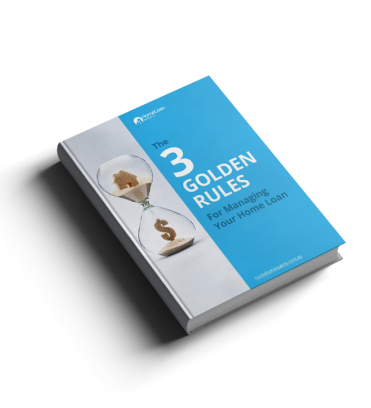What Is Equity In A Home?
Equity is the difference between the current market value of your home and the amount you still owe on your home loan. It represents the portion of your property that you truly own, free and clear of any mortgage debt. For example, if your home is valued at $600,000 and you owe $400,000 on your mortgage, your equity would be $200,000.
Why Is Home Equity Important?
Home equity acts as a financial reserve, growing each time you make a payment on your home loan. A portion of each payment is applied toward reducing the principal amount borrowed, which increases your equity. This growth accelerates if the market value of your property increases.
But what does this mean for you as a property investor? Here’s why home equity matters:
- Building wealth: You can speed up your wealth-building by using your home equity to buy more properties. As your investment properties appreciate in value, your overall equity grows, creating a compounding effect that enhances your financial position and leads to greater financial security.
- Access to funds: Once you have accumulated enough equity, you can access it through a home equity loan, a line of credit, or by refinancing your mortgage. This allows you to use this equity as a deposit for purchasing an investment property so that you don’t have to save up cash or sell other assets. You can typically borrow up to 80% of your home’s equity without having to pay Lenders Mortgage Insurance (LMI), depending on your financial situation and the lender’s criteria.
- Increased Borrowing Power: A higher amount of home equity can increase your borrowing power. Lenders are often more willing to offer larger loans to borrowers with substantial equity because it reduces their risk. This means you could potentially access more funds for investment purposes, enabling you to purchase higher-value properties or diversify your investment portfolio.
- Lower Interest Rates: Loans backed by equity often come with lower interest rates than unsecured loans, such as personal loans or credit cards. Lenders consider equity-backed loans less risky since they are secured against the value of your property, making them more affordable and attractive.
- Tax Benefits and Income Potential: Borrowing against your equity to buy an investment property increases your home loan principal, which may raise your monthly payments. However, the investment could generate rental income or appreciate in value, offering potential financial benefits. Additionally, the interest on the loan may be tax-deductible.
A Guide To Managing Your Home Loan

What Is Usable Equity?
Usable equity is the portion of your home’s equity that you can access and use, often for purposes like purchasing an investment property. It’s not the total amount of your equity but the amount a lender is willing to let you borrow against your home.
To calculate your usable equity, take 80% of your property’s current market value, and then subtract what you still owe on your mortgage.
Let’s break it down with an example.
Say your home is valued at $600,000, and you owe $300,000 on your mortgage. Here’s how the calculation works:
Current value of your home: $600,000
80% of your home’s value: $480,000
Minus your mortgage: $300,000
This means your usable equity is $180,000.
When purchasing an investment property, your usable equity can act as your deposit. If you’re looking at buying a property worth $500,000, you could use your $180,000 of equity as a 36% deposit.
Estimating With The Rule Of Four
With your usable equity calculated, you might be wondering – how do you turn it into your next investment opportunity?
A simple strategy to estimate how much you could afford to spend on an investment property is the “rule of four”. You can multiply your usable equity by four to determine the potential property price you can afford.
For example, with $180,000 of usable equity, multiplying by four gives you a maximum potential property value of $720,000.
If you were to buy a property worth $720,000, the bank would typically lend up to 80% of its value – $576,000 in this case. The remaining $144,000 would be your deposit, covered by your equity.
On top of your deposit, it’s important to have additional savings for upfront costs like stamp duty and other charges. These typically amount to around 5% of the property’s value. So, if you’re buying a $720,000 property, you’ll need an extra $36,000 in savings to cover these costs on top of $144,000 as a deposit, bringing your total required funds to $180,000.
Using equity in this way can be a powerful strategy to grow your property portfolio, but it’s essential to consider your overall financial situation and ability to service the loan. A mortgage broker can help you understand how much equity you can safely access and guide you through the process of using it as a deposit.
Ready to explore your options? Contact us at 1300 889 743 or fill in our free online assessment form, and together, we’ll find the best way to transform your equity into a valuable investment opportunity.
How Much Can I Borrow For An Investment Property?
You can borrow up to 95% of the value of an investment property. This higher borrowing capacity usually comes with conditions, such as the requirement to pay for LMI and having a strong financial profile.
When assessing your application, lenders take into account your income, expenses, credit history, existing debts, and the equity in your current home. They also consider the property’s potential rental income and overall market conditions, which can influence loan terms and whether you’ll need to pay for LMI.
Estimate your borrowing limit with our easy-to-use borrowing power calculator.
How Do I Use Equity To Buy An Investment Property?
Homeowners often ask, “Is it a good idea to use equity to buy another property?” Our experts often highlight that this strategy can be effective for many people. By leveraging your existing home’s value, you can grow your wealth without needing a large upfront cash deposit. This approach also offers benefits such as generating rental income, diversifying investments, and providing tax advantages associated with property investment.
Step 1: Determine your usable equity
Consult with a mortgage broker or financial adviser to calculate the amount of equity you can realistically use. This involves subtracting any debts secured against your home from its current market value.
Step 2: Choose the right loan type
Decide between refinancing your current mortgage or taking out a home equity loan or line of credit. Each option has different implications for your financial situation and investment strategy.
Step 3: Apply for the loan
With the help of a mortgage broker, submit a loan application with the required documentation. This typically includes identification documents, proof of income, property valuation, and other financial details.
Step 4: Use equity as a deposit
Use the released equity as a deposit to secure the investment property, potentially reducing or eliminating the need for LMI.
Step 5: Finalise the purchase
Complete the property purchase by covering all associated costs, such as stamp duty, legal fees, and any immediate property maintenance or renovation expenses.
Ways To Build Equity Quickly
Here are some strategies to accelerate equity growth:
- Make extra repayments: Pay more than the minimum required to reduce your loan’s principal faster, increasing your equity.
- Increase your property value: Invest in renovations or improvements that boost your home’s market value and, in turn, your equity.
- Choose a shorter loan term: A shorter loan term means higher repayments but faster equity growth.
- Make lump-sum payments: Use bonuses or tax refunds to make lump-sum payments, which directly reduce your principal.
- Refinance to a lower rate: Refinancing to a lower interest rate can lower your repayments, letting you pay off your loan quicker.
- Avoid interest-only loans: Focus on paying both principal and interest to steadily increase your equity.
- Switch to fortnightly repayments: Paying half your monthly repayment every two weeks results in an extra repayment each year, speeding up equity growth.
- Consider a split loan: A split loan gives you the flexibility to make extra payments on the variable portion while securing a fixed rate on the rest
Things To Consider Before Accessing Equity For Property Investment
Using the equity of your own home to buy an investment property carries some risks. If you don’t use your equity wisely, you could end up losing your home. Or worse, you could lose both your home and your investment property.
Here are some tips to help you maximise the power of your equity safely:
- Make sure you maintain a sufficient buffer. If you don’t have spare funds aside from the equity in your home, don’t use all of it to invest in property. This will help you prevent having to borrow money in the event of an emergency.
- Repay the loan on your home as quickly as possible before focusing on the investment. This way, you’ll have access to more equity and can use it if needed.
- Educate yourself about investing in property. It’s a huge financial commitment, so ensure you pick a good property in a high-growth area.
- Plan how you’ll manage repayments, especially during periods of vacancy or fluctuating rental income. Real estate is a long-term investment. Be ready for the ongoing responsibilities of property management and market monitoring.
Turn Your Home’s Equity Into Your Next Investment
We’re passionate about helping you make your equity work for you. Connect with us at 1300 889 743 for a personalised assessment and discover how to transform your equity into a lucrative investment opportunity.
Get Started NowMortgage Calculators
FAQs
Does Using Equity Increase Repayments?
Yes, using equity typically increases your repayments, as it involves taking on additional debt against your property value. The increased loan amount results in higher monthly repayments; however, the longer your loan term, the lower the repayments will be.
Are There Any Risks Of Using Equity To Buy Property?
Can You Use Equity For Stamp Duty?
Can I Use Equity To Pay Off A Mortgage?
Still need answers? We're here to help!
Ask an expertOur team of mortgage experts will assist you within 24 hours.
